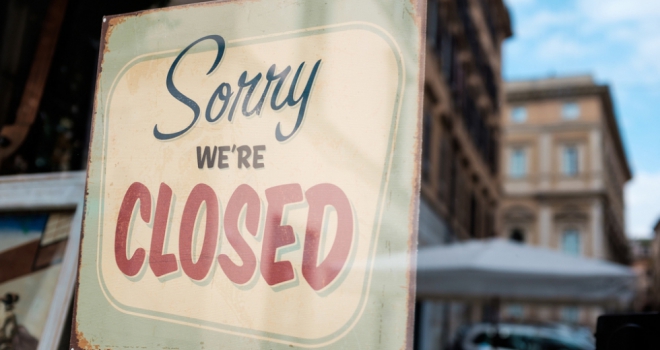
For property owners, buildings that are left empty not only mean lost revenue but could also become a source of additional financial issues if left unchecked. Some threats are external, and some are hiding inside the property.
Andrew Hook, expert plumber at Hero Labs, shares his top tips for a few things you can do to keep your property safe and damage-free during this difficult time.
1. Keep all security systems activated
Properties standing empty can be an easy target for burglars. A few things to check before you leave the house empty for an extended time might seem obvious: lock your windows and close the blinds, (preventing people from being able to look inside the property and spotting valuables) and check that all doors are locked. Set up a security system, or keep it activated if you already have one.
2. Secure your Wi-Fi network
In this digital age, your wireless connection is another way into the property for criminals, particularly if you have smart devices inside. A few things you could do are either to turn off your router or rename and hide your network. Here, all cybersecurity rules apply: have a strong password and install antivirus software where possible. This will prevent criminals from gaining direct access to your property through the network.
3. Check on your property
Where possible check in on your property regularly. This could be a tricky thing to do if the property is in another city to where you live but maybe you have someone you trust that lives close by, like a neighbour. They could do a virtual tour for you as well. If your property is your livelihood, this counts as travelling to essential work in lockdown. Regular check-ups are not only helpful from a security standpoint but also allows you to run maintenance where necessary.
All of the plugs should be switched off at the wall along with the in-built appliances you might have, such as the oven, the dishwasher, fridge and microwave.
4. Check for unwanted leaks
Leaks can happen in many places both inside and outside the property and cause enormous damage if left unchecked. You should keep an eye on;
· The pipes under the kitchen and bathroom sink
· The water heater
· The panel under the dishwasher
· The toilet flapper
· The showerhead and moulding around the shower tray
· Go into the loft – you should look around the water tank for damp patches
· Check the overflow pipe – this is a white pipe that often comes out of a property into an external drain. If water is often dripping out of this, it could indicate that the toilet is running or the cold water tank is constantly filling, putting you at greater risk of a leak
Another way to see if there might be a leak is to write down your water meter reading each time you visit and compare those. If they are going up - you might have a hidden leak.
5. Turn off your water and electricity altogether
The best way to prevent a leak altogether is to shut off the water altogether at the stopcock. If you prefer to leave it open, it is a good idea to turn it all off and on every few months to make sure everything is still in good condition and working, but bear in mind that dripping water can be absorbed for up to three weeks if a leak goes unnoticed.
6. If the property is in a colder area, leave the heating on low
Spring is one of the worst seasons for pipes too, as the constant change of temperature between sunny days and cold nights can cause havoc. To better protect your property from leaks, leave the heating on low. This will prevent the pipes from freezing in the cold and the water expanding, causing a burst pipe but also protect the water tank in the loft, which is less insulated than other parts of the property.
7. Get smart
You might want to consider investing in a few little things to save you from worrying about your property’s safety. A smart leak detector, for instance, will spot any leaks you might have, alert you of them and either switch the water off itself or let you do it through a dedicated app, wherever you are. Other smart home devices, like an automated lights system, will turn on at a time you set them and make it less obvious that the property is empty.
8. Check your home insurance
Not all insurance policies will cover your property if it is empty for an extended time. You should ring your provider to check with them whether you need to change your policy while the property is empty. This will ensure that your policy is valid if you need to make a claim for any damage.





